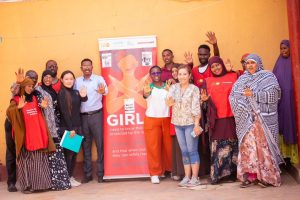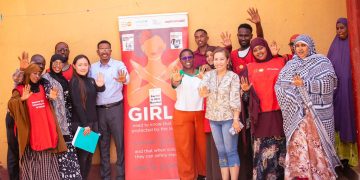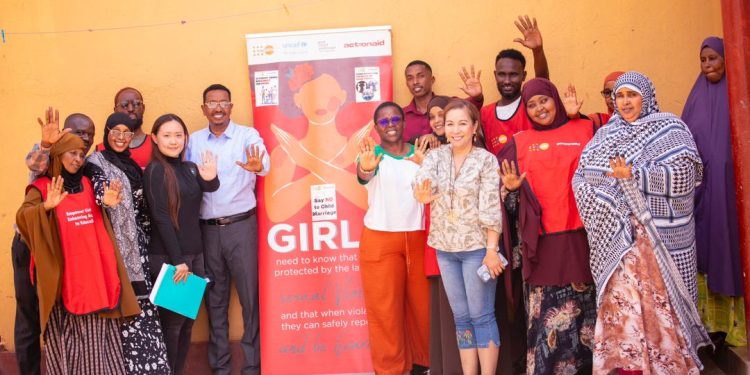Nateete, Kampala — The Somali refugee community in Nateete has issued a powerful appeal for sustained support in addressing mental health challenges, gender-based violence (GBV), female genital mutilation (FGM), and reproductive health needs.
Speaking during a community dialogue attended by the United Nations Population Fund (UNFPA) and ActionAid International Uganda this week, leaders shared testimonies of transformation—while calling for deeper, long-term interventions.
“I am honoured to speak for the young women and girls,” said Faisa Abdiqani, the Community Secretary and Head of the Human Rights Council for the Somali Community in Nateete, underscoring the gravity of the challenges faced by refugees—particularly young women, girls, and survivors of violence.

“I work closely with young women and girls—amplifying their voices, strengthening leadership, and ensuring their concerns are heard in every discussion that affects them. I am honoured to speak on behalf of the young women, the girls, and the entire Somali youth community.”
Faisa thanked UNFPA for its presence and partnership: “Your visit shows your commitment to listening directly to the community and understanding the realities we face… We learned that the work being done here has been made possible through your support.”
“Stigma is reducing—our people are speaking out”
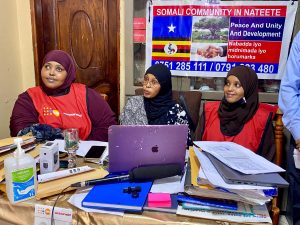
Faisa described how, before ActionAid and UNFPA interventions, mental illness was widely misunderstood. It was considered shameful or a spiritual weakness; no counselling services or safe discussion spaces, survivors of violence suffered in silence, new arrivals faced isolation, and the youth carried deep trauma from war and displacement.
She recalled a common community sentiment: “Most people said: ‘You are human like us—how can you help us?’ Yes, God comes first, but you also need to help yourself.”

Today, she says, change is visible: youth speak openly about trauma, survivors seek help, parents listen without judgment, girls feel safer and more empowered, and stigma has dropped significantly.
“Breaking cycles and transforming mindsets”
Gender-based Violence (GBV) was once treated as a “private matter” with survivors blamed, shamed, or silenced. Through UNFPA-supported ActionAid programs, the community now has community protection groups, confidential reporting channels, GBV-focused safe spaces, school-based education and counselling and legal linkages.
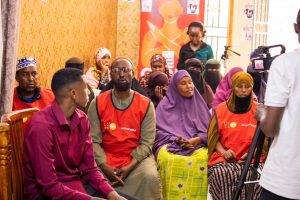
Faisa said: “When survivors are believed and supported, we don’t just respond to violence—we break cycles, transform mindsets, and build a culture of dignity and equality.”
“It ends with me”
On Female Genital Mutiliation (FGM), Faisa delivered one of the day’s most powerful statements: “I may or may not be a survivor, but I do not support FGM in any form. I couldn’t speak for myself back then, but I will protect my daughter. It ends with me.”

She noted that families still secretly practice FGM, girls lack the power to refuse, the tradition is linked to marriageability, and ignorance fuels the practice.
However, intervention efforts—led by trained youth, leaders, health workers, and faith figures—are creating change: fewer girls are being cut, mothers are rejecting the practice, survivors now have access to medical and trauma care, and religious leaders support zero tolerance.
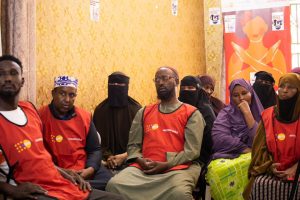
The community previously rejected family planning due to cultural beliefs, large-family expectations, and limited maternal health access. With new interventions, women openly seek reproductive health information, birth spacing is better understood, teenage pregnancy has decreased, girls remain in school longer and youth ambassadors counsel peers.
“Your resolve is powerful”
Dr Tapiwa Uchizi Nyasulu, Regional Gender and Human Rights Advisor for UNFPA-ESARO, praised the community’s resilience: “You have spoken openly and powerfully. You want a better life for yourselves and your children. That determination is powerful.”
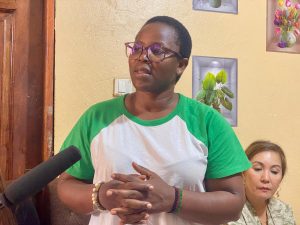
She emphasised UNFPA’s broader commitment: “We have a global programme dedicated to ending FGM… We work with UN agencies, international partners, and local organisations. Your testimonies help us amplify your voices and bring more partners on board.”
Dr Tapiwa applauded the unity seen in the community: “Men and boys, religious leaders—you are working side by side with women and girls. You are champions of change.”
“Our cases are many, but only a few are seen”
Community chairman Abdiqani Mohammed described the scale of responsibility: “The community office handles many issues affecting women, men, children, and teenagers, but only a few are publicly highlighted.”

He noted longstanding cultural challenges, especially around FGM and maternal support. Nateete alone hosts 450 Somali families, while Uganda hosts over 12,000 Somali refugee families. As of October 31, 2025, there are 49,991 Somali refugees, according to data provided by the Government of Uganda’s Office of the Prime Minister and the UNHCR – The UN Refugee Agency.
Josephine Zhane Omunyidde, UNFPA Uganda’s Communications & Resource Mobilisation Specialist, highlighted the value of community storytelling: “These stories help supporters emotionally and intellectually connect with the issues… We appreciate your powerful work in reaching over 12,000 Somali family members in Uganda.”

Samuel Francis Ononge, the Coordinator EU Project in Karamoja at ActionAid International Uganda, thanked UNFPA: “Your support has transformed mindsets and improved attitudes toward sexual and mental health services.” He noted that the shift is especially clear among youth and in schools.
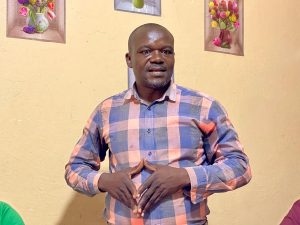
UNFPA reaffirmed its commitment to protecting the rights of Somali refugees in Uganda, acknowledging the community’s resilience and calling for multi-agency collaboration to combat GBV, FGM, teenage pregnancy, and harmful practices.
